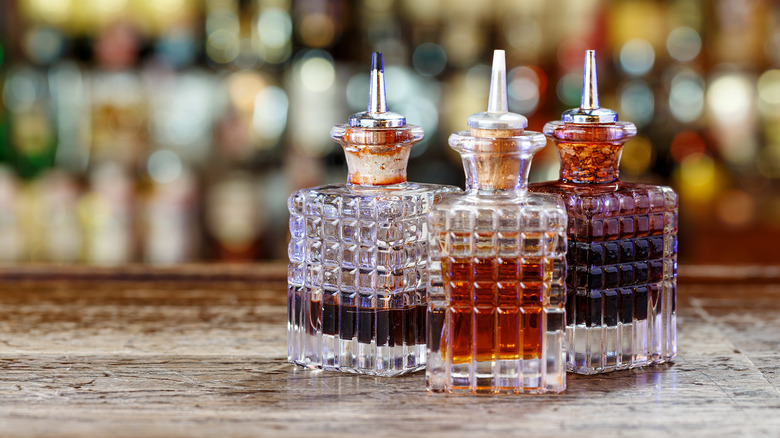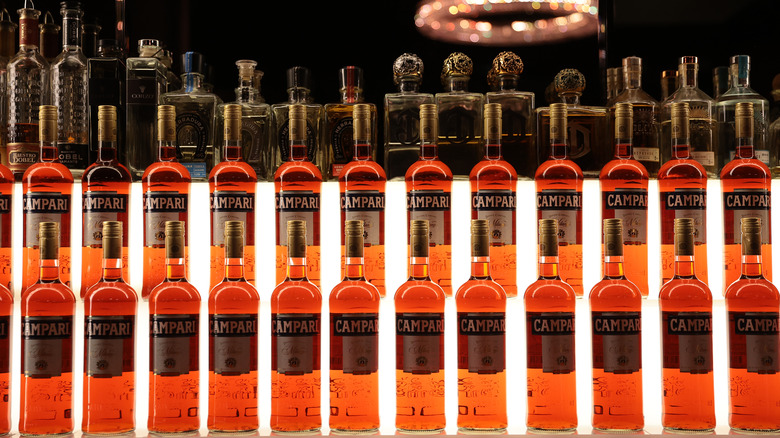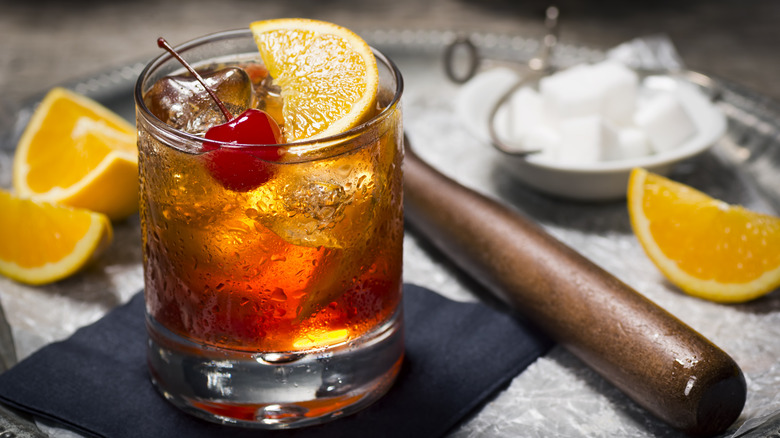The Cocktail Bitters Swap For A Mellow Happy Hour
The world of bitters is wide and wondrous, largely because the category is so versatile. Bitters are simply high-proof spirits infused with botanicals to add flavor and possible health benefits. Bitters were historically used for their medicinal properties, and even during Prohibition people would drink bitters for their health!
But they quickly gained popularity as a means of flavoring, and bitters are referenced in one of the first printed definitions of a "cocktail" in 1806. Now, they are used in a variety of classic cocktails, with many bartenders even making their own to create bespoke drinks with new ingredients.
These days, you probably think of a dusty bottle of Angostura cocktail bitters, that sits at the back of your bar cart until the day you feel like making an Old Fashioned or a Manhattan. But these highly concentrated, intensely flavorful bitters are not the only answer for adding depth and balance to a cocktail.
Why you should swap your bitters
As Webstaurant explains, different kinds of bitters can be substituted for others in order to shake up a well-known cocktail. The most commonly used cocktail bitters are Angostura bitters (with notes of clove and cinnamon), Peychaud's bitters (with notes of anise, nutmeg, and mint), and orange bitters (which balance the predominant orange flavor with notes of cardamom, anise, and carraway).
But if you don't have cocktail bitters on hand, or you want to swap them out for something with a brighter, lighter flavor profile, it's worth exploring the other side of the bitters shelf.
Another popular class of bitters are Italian red bitters, like the apéritifs Campari and Aperol, and amari or digestifs like Averna and Montenegro. These liqueurs are typically low-ABV and high in sugar, giving them a velvety mouthfeel that works well in cocktails. There are also a variety of delicious non-alcoholic versions of these bitters, like Sanbitter and St. Agrestis, for an even lighter beverage. Swapping one of these in for cocktail bitters will give you something with less of a sharp botanical edge, more sweetness, and a lower ABV.
Cocktail ideas with bitters
As cocktail bitters and bitter aperitifs and digestifs are very different in terms of flavor profile and dosage, you can't simply swap them one for one. But there are a few interesting swaps that will intrigue your next happy hour co-conspirators. A Campari Old Fashioned, for example, swaps out the traditional dashes of Angostura bitters for half an ounce of Campari, to balance out rye whiskey with some citrus notes.
Other sources suggest using even less of a liqueur for a bitters swap. A Couple Cooks, which calls Campari the best suggestion for a cocktail bitters replacement, suggests using only ¼ teaspoon of an aperitif or amaro in lieu of bitters.
A Manhattan, which typically uses rye whiskey, red vermouth, and Angostura bitters, can nix the bitters altogether in a Black Manhattan, which uses the Italian bitter liqueur Averna in place of vermouth. For a gin-based cocktail like the Martinez, swap out bitters for a splash of Aperol, to bring the bright orange and botanical notes out of the gin.



